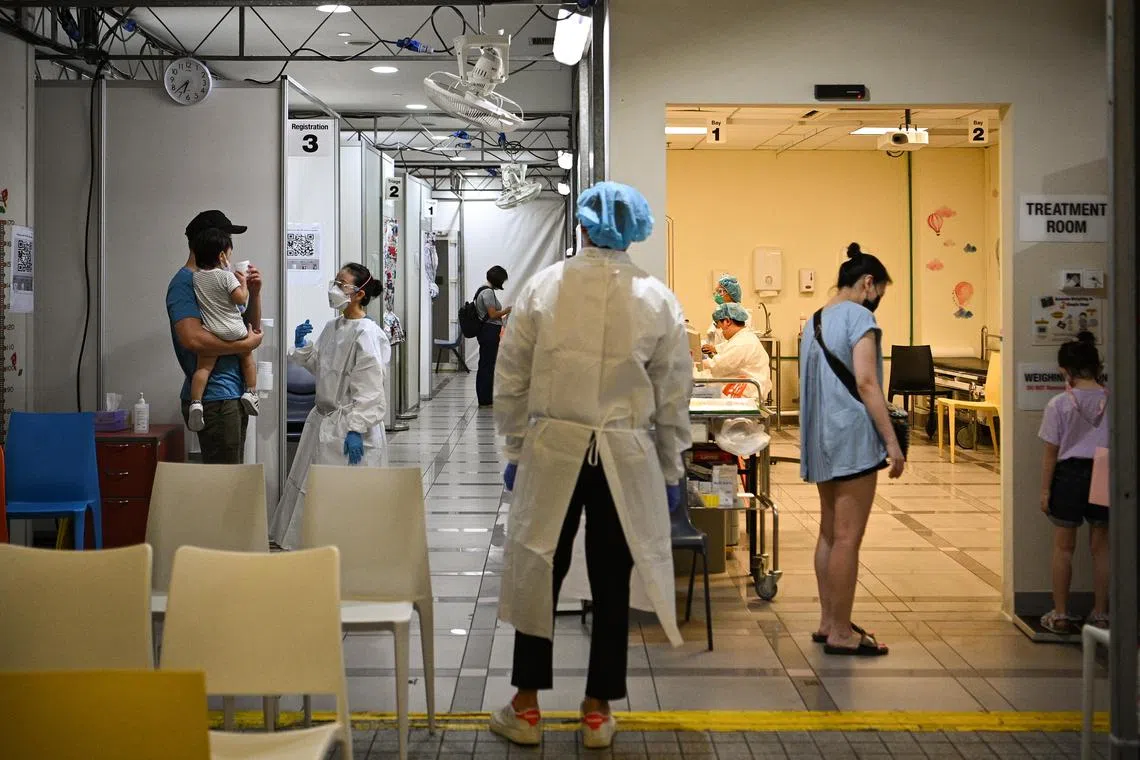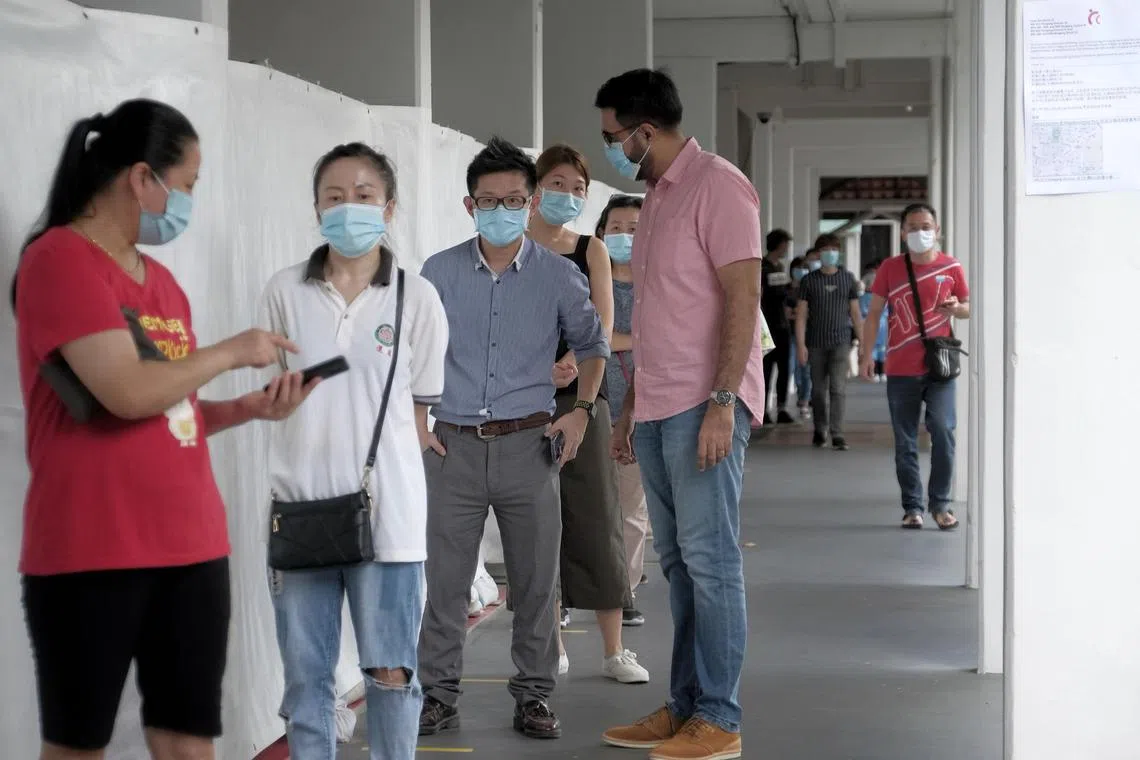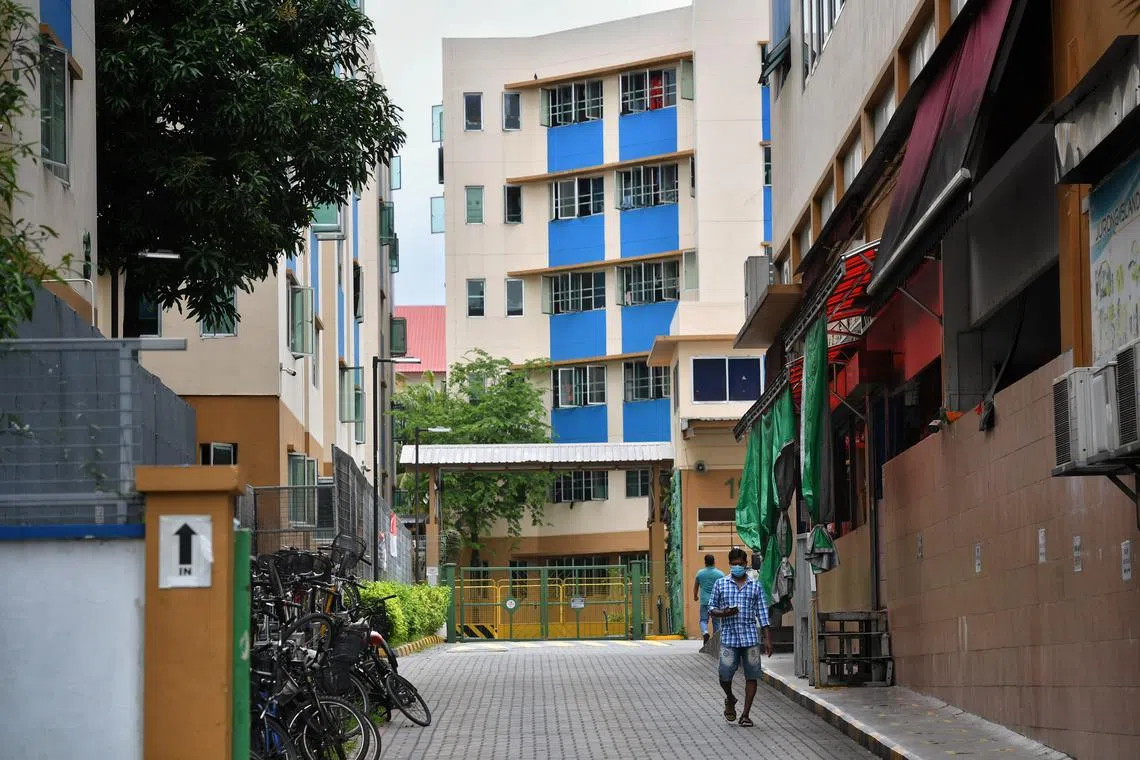The gist: MPs discuss tackling future pandemics, migrant worker housing
Sign up now: Get ST's newsletters delivered to your inbox

Singapore plans to form a dedicated centre for public health, to be able to deal with any future pandemics.
ST PHOTO: LIM YAOHUI
Follow topic:
SINGAPORE - On Monday, Parliament debated the White Paper on Singapore’s Covid-19 response, among other things. Here are some of the key takeaways:
1. Dedicated centre for public health to be set up

The Straits Times
To consolidate and build its disease control and pandemic management capabilities and expertise, Singapore will form a dedicated centre for public health, similar to the centres for disease control that other countries have set up, said Deputy Prime Minister Lawrence Wong.
Why it matters
A key lesson from the pandemic is that the Republic needs to be able to detect the spread of novel pathogens quickly through effective surveillance, as well as swiftly develop response measures to control the spread of disease. While it already has some of these capabilities, they currently reside in various parts of the healthcare system, such as the National Centre for Infectious Diseases and within the Ministry of Health. By bringing such expertise together in a dedicated public health centre, the country will be able to develop stronger competence in public health.
2. WP supported, instead of undermined, national Covid-19 effort: Pritam

The Straits Times
While some opposition parties in other countries used Covid-19 to attack the government and gain political mileage, Leader of the Opposition Pritam Singh said the Workers’ Party (WP) did not publicly criticise the Government on its handling of an unprecedented crisis and was determined to support, not undermine, the national effort – even when some residents expressed frustration towards safe-distancing measures.
Why it matters
A crisis like Covid-19 called for a unity of purpose, said Mr Singh. Where WP town council officers realised some rules could prove problematic when operationalised on the ground, they submitted feedback to the agencies concerned, with the view that they would be taken seriously by civil servants. This approach meant political parties and agencies could work as one Singapore, dealing with issues without compromising national measures or the safety of Singaporeans. This has been the WP’s political posture during Covid-19, and what the public can expect from the party when national crises strike in future, said Mr Singh.
3. Improving conditions in migrant worker dormitories

The Straits Times
A plan to help existing migrant worker dormitories transition to improved living standards will be announced later in 2023. This is one of several reforms in the areas of housing, healthcare and social support for migrant workers that have been made in the wake of the pandemic, said Manpower Minister Tan See Leng of the lessons learnt from Covid-19.
Why it matters
Poor living conditions in dorms here came under scrutiny when Covid-19 spread like wildfire among the more than 300,000 dorm residents,
If you have a few more minutes…
1. Better enforcement over smaller dorms with expansion of law in April
The expansion of the Foreign Employee Dormitories Act (Feda) on April 1 will give the authorities additional levers against errant dorm operators, especially smaller ones that house workers in industrial buildings and warehouses. Four factory-converted dorms have been prosecuted for unacceptable living conditions since 2017, with another 175 warned or fined. With Feda, the authorities will also be able to issue directives to dorm operators and bar them from taking in new tenants until lapses are fixed. On Monday, MPs lauded the crucial role non-governmental organisations played to help migrant workers during the pandemic and urged the authorities to continue working closely with these groups.
2. Balancing trade-offs in development and conservation of Southern Islands
Development at the biodiversity-rich Southern Islands has come under the spotlight, with new tiny homes for holidaying on Lazarus Island
3. National strategy for mental health and well-being to be ready by end-2023
A national plan aimed at creating a more caring and inclusive Singapore where all can seek help and be supported in their mental health will be ready by the end of 2023.
The strategy is being developed by the Interagency Taskforce on Mental Health and Well-being, after an earlier group convened to study the mental health impact of Covid-19 on the population recommended that a whole-of-government approach be taken on the issue. In May 2022, the task force proposed 12 recommendations to address gaps

